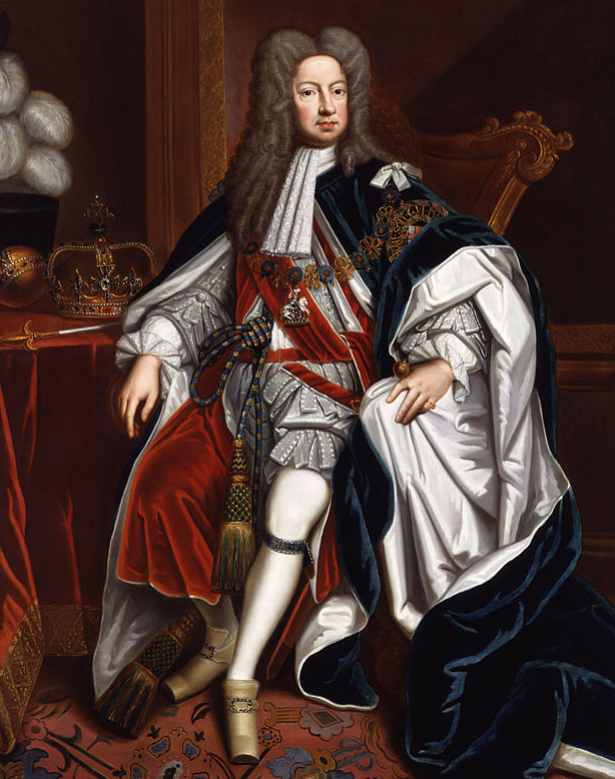Webmaster Notes
The Freer 150 tree for reference.
The clergy at Belchamp Walter saw William Kent as Vicar in 1723 and George I as Patron. This is not recorded on Richard Newcourt's list for Belchamp Walter.
Newcourt has Jac. Alleyn, Richard Bate and John Thomas as priests in 1678-1680 - the Patrons are listed as William Ayliff and William Raymond.
George I - 1714-1727
George I became king when Queen Anne died in 1714.
The Queen Anne period provided the inspiration for the new Belchamp Hall which was built in the Queen Anne style.
The hall was rebuilt in the early Georgian period, it is sometimes referred to as a Georgian House. This style of house was popular at the time and many older houses were renovated in the Georgian Style. These 16th century houses can be seen in the Sudbury, Suffolk area.
Belchamp Hall
Most commomly known as a "Queen Anne" building
Top
What Wikipedia says about George I:
George I 28 May 1660 – 11 June 1727) was King of Great Britain
and Ireland from 1 August 1714 and ruler of the Electorate of Hanover within the Holy Roman Empire from 23 January 1698
until his death in 1727. He was the first British monarch of the House of Hanover as the most senior
Protestant descendant of his great-grandfather James VI and I.
Queen Anne style of British architecture
The Queen Anne style of British architecture refers to either the English Baroque architecture of the time of Queen Anne
(who reigned from 1702 to 1714) or the British Queen Anne Revival form that became popular during the last quarter of the 19th
century and the early decades of the 20th century.[1] In other English-speaking parts
of the world, New World Queen Anne Revival architecture embodies entirely different styles.
Overview
With respect to British architecture, the term is mostly used for domestic buildings up to the size of a manor house, and usually
designed elegantly but simply by local builders or architects rather than the grand palaces of noble magnates. The term is not often
used for churches. Contrary to the American usage of the term, it is characterised by strongly bilateral symmetry, with an
Italianate or Palladian-derived pediment on the front formal elevation.
